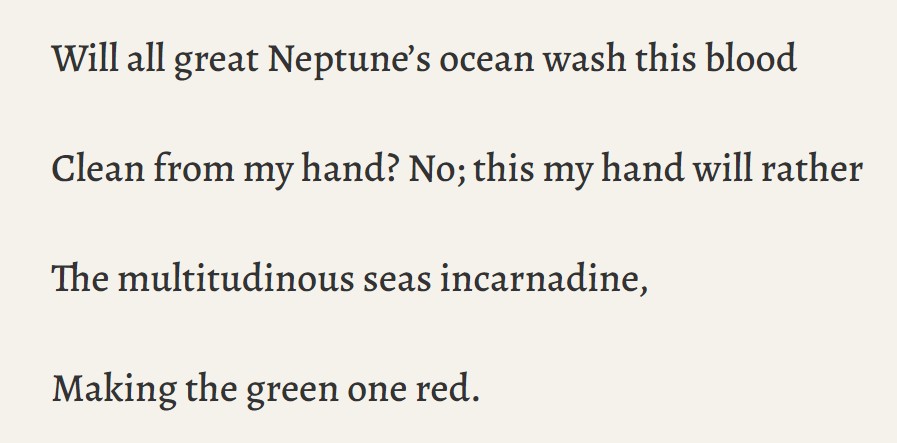David Bentley Hart in The Lamp:
 Every great national prose, in just about any tongue, reaches its high meridian only by way of a prolonged and constant negotiation of just this tension between beauty and sublimity—between the decorative and the august, or between the splendid and the lucid. And this comes only at the end of long epochs of development. To be able to balance expressiveness and reticence, or to know when to cast that balance away, requires tact and ingenuity and taste on the part of writers; but it also requires a language of sufficient maturity. This is why prose of any consequence invariably arrives far later in a culture’s history than does great poetry. Poetry entered the world almost as early as words did; it is the first flowering of language’s intrinsic magic—its powers of invocation and apostrophe, of making the absent present and the present mysterious, of opening one mind to another. It comes most naturally to languages in their first dawn, when something elemental—something somehow pre-linguistic and not quite conscious—is still audible in them. Prose, however, evolves only when that force has been subdued by centuries upon centuries of refinement, after unconscious enchantment has been largely mastered by conscious artistry, and when the language has acquired a vocabulary of sufficient richness and a syntax of sufficient subtlety, and has fully discovered its native cadences.
Every great national prose, in just about any tongue, reaches its high meridian only by way of a prolonged and constant negotiation of just this tension between beauty and sublimity—between the decorative and the august, or between the splendid and the lucid. And this comes only at the end of long epochs of development. To be able to balance expressiveness and reticence, or to know when to cast that balance away, requires tact and ingenuity and taste on the part of writers; but it also requires a language of sufficient maturity. This is why prose of any consequence invariably arrives far later in a culture’s history than does great poetry. Poetry entered the world almost as early as words did; it is the first flowering of language’s intrinsic magic—its powers of invocation and apostrophe, of making the absent present and the present mysterious, of opening one mind to another. It comes most naturally to languages in their first dawn, when something elemental—something somehow pre-linguistic and not quite conscious—is still audible in them. Prose, however, evolves only when that force has been subdued by centuries upon centuries of refinement, after unconscious enchantment has been largely mastered by conscious artistry, and when the language has acquired a vocabulary of sufficient richness and a syntax of sufficient subtlety, and has fully discovered its native cadences.
More here.
